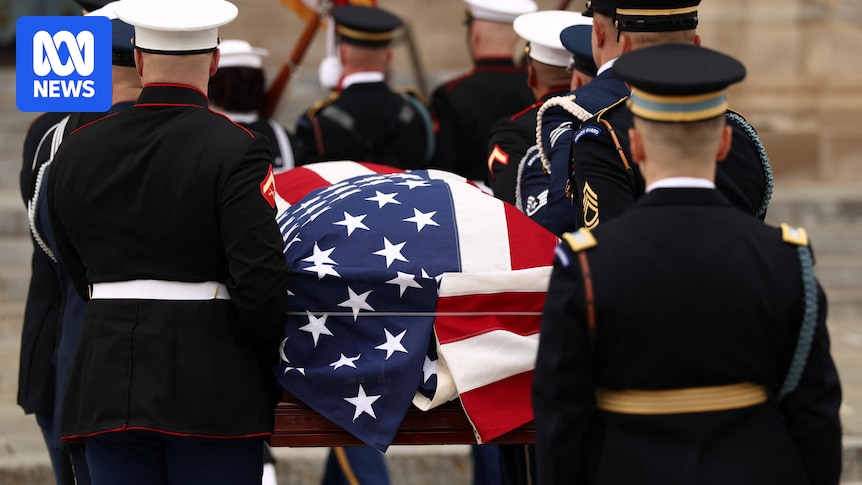
Dick Cheney, a towering figure in Republican politics and a pivotal architect of America’s “War on Terror,” was honored at a funeral in Washington, D.C., attended by the nation’s political elite. Notably absent from the ceremony were President Donald Trump and Vice-President JD Vance, underscoring the deep ideological divides within the current political landscape.
The event, held at the Washington National Cathedral, drew over 1,000 guests, including former presidents George W. Bush and Joe Biden. Every living former vice-president, such as Kamala Harris, Mike Pence, Al Gore, and Dan Quayle, was present, alongside military generals, foreign dignitaries, and Supreme Court justices. In stark contrast, President Trump, who has yet to publicly acknowledge Cheney’s passing, was not invited.
Cheney’s Legacy in American Politics
Cheney’s career, spanning over five decades, is a testament to his influence on American statecraft. Serving as the defense secretary during the Gulf War and later as the 46th vice-president under George W. Bush, Cheney’s impact on foreign policy remains a subject of national debate. His tenure as vice-president was marked by a significant expansion of executive power, a legacy that continues to polarize opinions.
Former President George W. Bush delivered a heartfelt tribute, joined by Cheney’s daughter, Liz Cheney, who has been a vocal critic of Trump. Liz Cheney’s opposition to Trump led to her ousting from the congressional Republican Party, highlighting the ongoing tensions within the GOP.
A Controversial Figure
Cheney was often described by historians as the “most powerful vice-president in modern US history.” His strategic acumen and steady leadership were praised by many, including former Vice-President Mike Pence, who remarked,
“Vice-President Dick Cheney was an American patriot who served this country like very few in our history, and I was always inspired by his quiet and steady leadership.”
Despite his accolades, Cheney’s legacy is marred by controversy. His advocacy for the 2003 invasion of Iraq, based on the assertion that Saddam Hussein possessed weapons of mass destruction, remains a contentious issue. The subsequent unraveling of this intelligence has haunted his reputation.
Impact on National and Global Policies
Cheney’s influence extended beyond domestic politics. He was a key proponent of the Patriot Act, which expanded surveillance powers, and defended the use of “enhanced interrogation” techniques, sparking widespread debate over human rights and ethical governance.
His role in shaping aggressive foreign policies has left a lasting impact on America’s global standing. Critics argue that his decisions contributed to long-term instability in the Middle East and strained international relations.
A Shift in Political Alignment
In his later years, Cheney became a critic of the Republican Party’s shift towards populism. He openly opposed Trump, whom he labeled a “threat to our republic,” and even endorsed Kamala Harris, a Democrat, in the 2024 presidential election. This move highlighted Cheney’s commitment to traditional conservative values over party loyalty.
Trump’s absence from the funeral serves as a symbolic representation of the ideological rifts that have fractured Washington and the broader United States. The lack of bipartisanship, once a hallmark of Cheney’s era, now seems a relic of the past.
Looking Ahead
As the nation reflects on Cheney’s complex legacy, the political landscape continues to evolve. His death marks the end of an era for many in Washington, but the debates he ignited over executive power, foreign policy, and party identity remain highly relevant.
Flags across the United States were lowered to half-mast in honor of Cheney, who passed away on November 3. The silence from President Trump’s office, aside from a brief acknowledgment by his press secretary, Karoline Leavitt, speaks volumes about the current state of political discourse.
As the nation moves forward, Cheney’s life and career will undoubtedly continue to influence discussions on governance, leadership, and the future direction of the Republican Party.






